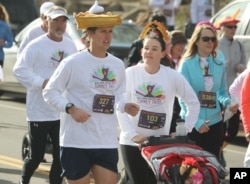Here you are some links for revision and practice:
http://www.englishnumber.com/
https://www.esl-lab.com/num.htm
http://ieltsliz.com/alphabet-practice-for-spelling/
https://www.englishspanishlink.com/en/english-pronunciation/exercises/abc-listen2.htm
https://www.youtube.com/watch?v=RUX9YlEbenI
And below, you can practice numbers and spelling:
https://ielts-simon.com/ielts-help-and-english-pr/2012/03/ielts-listening-numbers-and-letters.html
Enjoy!
KALEIDOSCOPE
- Leticia González Cepeda
- Proyecto de blog de aula para alumn@s y profesor@s
Showing posts with label Listening. Show all posts
Showing posts with label Listening. Show all posts
Monday, 19 November 2018
Tuesday, 23 January 2018
Wednesday, 17 January 2018
Monday, 11 December 2017
Thursday, 30 November 2017
Thursday, 23 November 2017
Thanksgiving
Thanksgiving is a big day for television, games and other entertainment.
One tradition is the television broadcast of Macy’s Thanksgiving Day Parade. It takes place each year in New York City. Workers of the Macy’s store on Herald Square organized the first parade in 1924. Many of the workers were immigrants and wanted to hold a big parade like the ones in Europe. So, they dressed in costumes and borrowed some animals from the zoo. They also carried small balloons that floated just overhead.

Some start Thanksgiving Day early - and in a healthy way. So-called “Turkey Trot” races take place in many towns and cities. These events involve runners dressing up in a Thanksgiving-related costume and running a short distance -- usually five kilometers.

Serving those less fortunate
Certainly, not everyone in America has an easy Thanksgiving. The United States is home to many poor and homeless people. Some cannot afford a Thanksgiving dinner. Others are without friends or families. Many religious and service organizations around the country try to fill these needs. Some provide community dinners at churches and other centers. Some groups also deliver Thanksgiving meals to people too sick or old to leave their homes.

Monday, 9 October 2017
Wednesday, 3 May 2017
Monday, 3 April 2017
Thursday, 22 December 2016
Saturday, 17 December 2016
Tuesday, 21 February 2012
Carnival Time!

Dear NI1 students,
Here you are a reading and listening activity to learn more about carnival celebrations in the US. First read the text and then click on the "NEXT ACTIVITY" button to do a listening exercise.
Enjoy!
http://www.esolcourses.com/content/topics/festivals/carnivals-and-fiestas/mardi-gras/mardi-gras-and-new-orleans.html
Wednesday, 16 February 2011
St. Valentine's Dialogue
Dear Ni2 students,
Please have a look at this link:
http://elllo.org/english/0901/T944-Mel-VDay.htm
You'll listen to people speaking about St. Valentine's Day. This webpage is great because you can listen and read at the same time and the speakers use a really natural language. You can find comprehension questions too.
Hope you like it!
Leticia.
Please have a look at this link:
http://elllo.org/english/0901/T944-Mel-VDay.htm
You'll listen to people speaking about St. Valentine's Day. This webpage is great because you can listen and read at the same time and the speakers use a really natural language. You can find comprehension questions too.
Hope you like it!
Leticia.
Monday, 20 December 2010
New links
Dear NB1 and NI2 students,
I've added a couple of links to our listening section.
Words in the news is specially good for NI2 students, so that you can practice news English. You can listen and read at the same time as well as learn new vocabulary.
English central is good for any level students. You have to register and then choose your level (easy,medium or hard). The procedure is simple:
- watch a video with subtitles
- then record yourself reading the subtitles.
- the software will give you feedback on your speech.
This way you will learn:
- pronunciation of words
- sentence intonation
- sentence rythm
I hope you like it!
I've added a couple of links to our listening section.
Words in the news is specially good for NI2 students, so that you can practice news English. You can listen and read at the same time as well as learn new vocabulary.
English central is good for any level students. You have to register and then choose your level (easy,medium or hard). The procedure is simple:
- watch a video with subtitles
- then record yourself reading the subtitles.
- the software will give you feedback on your speech.
This way you will learn:
- pronunciation of words
- sentence intonation
- sentence rythm
I hope you like it!
Labels:
autonomous learning strategies,
Listening,
video
Tuesday, 11 May 2010
Chocolate Cake Recipe
Dear B1 students,
Since we won't have time to look at recipes, I'd like you to watch this sweet video where you can get an idea of recipe language.
Enjoy!
PS: you can see the text below
Chocolate:
How To Make Chocolate Cake
Step 1: You will need:
Units:
* 200 g caster sugar
* 200 g softened butter
* 4 medium eggs, beaten
* 170 g self-raising flour
* 30 g cocoa
* 1 tsp baking powder
* 2 tbsp milk
* 200 ml double cream
* 50 g butter
* 3 tbsp clear honey
* 200 g dark chocolate
1.
Step 2: Mix
Heat oven to 190C/fan 170C/gas 5, 375F. Butter two 20cm (8 in) sandwich tins and line with non-stick baking paper.
2.
Step 3: Bake
In a large bowl, beat together 200g softened butter with 200g caster sugar, 4 eggs, 170g flour and 30g cocoa powder until you have a smooth, soft batter.
Divide the mixture between the tins, smooth the surface with a spatula or the back of a spoon, then bake for about 20 mins until the top is a beautiful golden colour. The cake should spring back when you press it. Turn it onto a cooling rack and leave to cool completely.
3.
Step 4: Frosting
For the fudge frosting, heat 200ml double cream until it just begins to boil. Take it off the heat and add 50g butter, 3 tablespoons honey and 200g dark chocolate, which has been broken into pieces. Leave the mixture for five minutes so the chocolate melts, then stir it briefly to combine all the ingredients - don't over-mix it or it will lose its shine.
4.
Step 5: Ice
Sandwich the cakes with a third of the just-warm frosting and spread the rest over the top and sides. Top with shaved or grated chocolate.
Since we won't have time to look at recipes, I'd like you to watch this sweet video where you can get an idea of recipe language.
Enjoy!
PS: you can see the text below
Chocolate:
How To Make Chocolate Cake
Step 1: You will need:
Units:
* 200 g caster sugar
* 200 g softened butter
* 4 medium eggs, beaten
* 170 g self-raising flour
* 30 g cocoa
* 1 tsp baking powder
* 2 tbsp milk
* 200 ml double cream
* 50 g butter
* 3 tbsp clear honey
* 200 g dark chocolate
1.
Step 2: Mix
Heat oven to 190C/fan 170C/gas 5, 375F. Butter two 20cm (8 in) sandwich tins and line with non-stick baking paper.
2.
Step 3: Bake
In a large bowl, beat together 200g softened butter with 200g caster sugar, 4 eggs, 170g flour and 30g cocoa powder until you have a smooth, soft batter.
Divide the mixture between the tins, smooth the surface with a spatula or the back of a spoon, then bake for about 20 mins until the top is a beautiful golden colour. The cake should spring back when you press it. Turn it onto a cooling rack and leave to cool completely.
3.
Step 4: Frosting
For the fudge frosting, heat 200ml double cream until it just begins to boil. Take it off the heat and add 50g butter, 3 tablespoons honey and 200g dark chocolate, which has been broken into pieces. Leave the mixture for five minutes so the chocolate melts, then stir it briefly to combine all the ingredients - don't over-mix it or it will lose its shine.
4.
Step 5: Ice
Sandwich the cakes with a third of the just-warm frosting and spread the rest over the top and sides. Top with shaved or grated chocolate.
Thursday, 8 April 2010
Easter listening
Dear B2 students:
Here you are the link to the listening activity about Easter.
And this is the learning English section from the BBC.
Enjoy!
Here you are the link to the listening activity about Easter.
And this is the learning English section from the BBC.
Enjoy!
Monday, 15 February 2010
Listening practice links
Hi!
This is a message for B1 students.
Here you are a list of list of links where you can find listening practice (remember you have these links in this blog, on the right):
www.podcastsinenglish.com (level 1)
www.real-english.com (beginner level)
www.esl-lab.com (easy level)
www.elllo.org --> no levels in this website, so just relax -'cause it's difficult- listen and read. This kind of listening will help you get features of natural English speaking.
http://www.eslpod.com/website/index_new.html (American English)
And, of course, listen and read your Oxford bookworms books.
Improving listening takes time, so, as I said before, relax and practice as much as you can!
Have a nice day!
This is a message for B1 students.
Here you are a list of list of links where you can find listening practice (remember you have these links in this blog, on the right):
www.podcastsinenglish.com (level 1)
www.real-english.com (beginner level)
www.esl-lab.com (easy level)
www.elllo.org --> no levels in this website, so just relax -'cause it's difficult- listen and read. This kind of listening will help you get features of natural English speaking.
http://www.eslpod.com/website/index_new.html (American English)
And, of course, listen and read your Oxford bookworms books.
Improving listening takes time, so, as I said before, relax and practice as much as you can!
Have a nice day!
Labels:
autonomous learning strategies,
Listening
Monday, 18 January 2010
Listening on Friday
Dear B2 students,
Here you are the link to the listening we did last Friday:
http://www.elllo.org/english/Points/PT06-Cities.html
You can get the worksheet tomorrow in class.
See you and have a nice week!
Here you are the link to the listening we did last Friday:
http://www.elllo.org/english/Points/PT06-Cities.html
You can get the worksheet tomorrow in class.
See you and have a nice week!
Saturday, 9 January 2010
How to pronounce 2010?
Hi everyone out there!
How are you doing this year so far? before you can answer this question maybe you need to know how to pronounce the year itself!
There's been a lot of debate as to how to say it: twenty-ten or two thousand ten.
One of the most important English Linguists -David Crystal- thinks that the rhythm or "flow" of "two thousand (and) ten", beats that of "twenty ten" (here you are the full wikipedia article about this: http://en.wikipedia.org/wiki/2010s)
And if you go to the link below (please copy the link and paste it in a new window) , you will hear (and read) some other opinions on this topic.
http://www.npr.org/templates/story/story.php?storyId=120470656
What's your personal feeling?
Mine is definitely twenty-ten!
See you soon!
How are you doing this year so far? before you can answer this question maybe you need to know how to pronounce the year itself!
There's been a lot of debate as to how to say it: twenty-ten or two thousand ten.
One of the most important English Linguists -David Crystal- thinks that the rhythm or "flow" of "two thousand (and) ten", beats that of "twenty ten" (here you are the full wikipedia article about this: http://en.wikipedia.org/wiki/2010s)
And if you go to the link below (please copy the link and paste it in a new window) , you will hear (and read) some other opinions on this topic.
http://www.npr.org/templates/story/story.php?storyId=120470656
What's your personal feeling?
Mine is definitely twenty-ten!
See you soon!
Saturday, 8 March 2008
IKEA
Subscribe to:
Posts (Atom)

